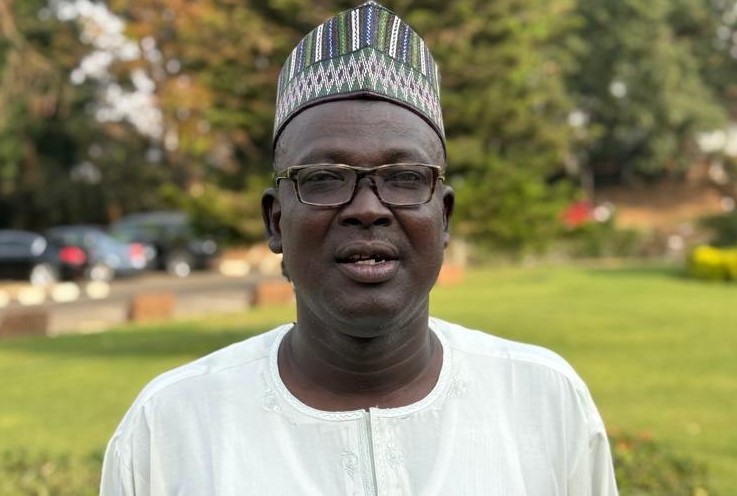Elections are more than just periodic exercises in voting. At their best, they are the heartbeat of democracy — a sacred mechanism that allows citizens to determine how they are governed and who governs them. It is through elections that legitimacy is conferred, policies are debated, and societies chart the course of their future. The ballot is not merely a piece of paper; it is a voice, a choice, and a powerful instrument of change.
Unfortunately, in Nigeria, elections have often failed to live up to this noble ideal. Instead of being a platform for national progress, they have become a theatre of manipulation, deception, and division. We have endured what can only be described as elections without electorates — a system where the voters are physically present, yet their influence and power are conspicuously absent.
To understand the depth of our electoral dysfunction, we must reflect on the last three general elections. In 2015, the presidential contest was framed as a North versus South battle. Muhammadu Buhari, a retired general from the North, challenged Goodluck Jonathan, a sitting president from the South. Though governance and security were major national concerns at the time, the underlying tone of the election revolved around ethno-political alignment. The transfer of power that resulted was less about ideas or reforms and more about regional supremacy.
By 2019, the prevailing narrative changed its language but not its divisiveness. What was once a contest of geography became one of faith. Islam and Christianity were pitted against each other in subtle and not-so-subtle ways, weaponized in campaign speeches, media commentaries, and public perception. The issues that should have defined the elections — like the economy, healthcare, and infrastructure — were buried under layers of suspicion and religious fear-mongering. Voter turnout dropped to a historic low of 34.75%, the lowest since the return to democracy in 1999, revealing a deeply disillusioned populace.
In 2023, the pattern continued, again dominated by the politics of religion and identity. A promising new force emerged in Peter Obi of the Labour Party, who galvanized a large youth movement and engaged urban, educated Nigerians in a way the political establishment had not anticipated. However, the national conversation soon drifted again to religious and ethnic lines. Despite renewed energy from the electorate, allegations of rigging, violence, and voter suppression plagued the process. International observers and civil society groups flagged numerous irregularities, casting a shadow over the credibility of the entire election.
This is not just disappointing — it is dangerous.
If Nigeria does not correct the course of its electoral culture, we risk entrenching a future of consistent misgovernance, deepening instability, and unending underdevelopment. The signs of collapse are already evident. Inflation is soaring, having crossed 33% in early 2025, while the National Bureau of Statistics reports that over 133 million Nigerians live in multidimensional poverty. These are not abstract figures — they represent hungry families, homeless youths, and empty markets.
The hardship is further compounded by alarming unemployment rates, particularly among the youth. With more than half of Nigerian youth either unemployed or underemployed, we are wasting the potential of an entire generation. Insecurity has also become a near-permanent feature of daily life. From terrorist attacks in the North to kidnappings and banditry in the Middle Belt and secessionist agitations in the South, the state seems overwhelmed. Yet these critical issues have rarely found meaningful expression during our elections because we have allowed identity to override ideology.
Perhaps most worrying is the growing disenchantment with democracy itself. In 2023, only 27% of registered voters participated in the elections. When a vast majority of citizens no longer believe in the power of the ballot, democracy is on life support.
The 2027 general elections must not follow this tragic script. They must be fundamentally different — not only in how they are conducted, but in why they are conducted and who they truly serve. Nigerians must awaken to the immense power they hold. We must collectively refuse to be manipulated by tribal sentiments, religious baiting, or regionally skewed rhetoric. The conversation must return to real issues: the economy, education, jobs, security, infrastructure, health care, and justice.
As the next electoral cycle approaches, the Nigerian people must insist on the highest levels of scrutiny. Candidates should be examined not for where they come from or how they worship, but for their records, their plans, and their character. Every community must begin to organize, educate, and mobilize their electorate to demand that the political space prioritizes competence, vision, and accountability.
Our institutions must also rise to the challenge. The Independent National Electoral Commission (INEC) must be granted full autonomy to act without political interference, and electronic voting systems must be strengthened to ensure credibility. The judiciary, too, must play its role in safeguarding electoral justice, rising above partisanship and upholding the constitution without fear or favour.
Democracy is not just about casting a vote; it is about making an informed, deliberate choice — and defending that choice with vigilance. If we continue to allow our elections to be driven by emotion rather than logic, sentiment rather than substance, we will continue to recycle the very problems that have brought our country to its knees.
But there is hope.
2027 is not just another year; it is an opportunity for rebirth. It can be the moment we reclaim our future, but only if we decide that this time, things must be different. The ballot is not the end — it is the beginning. And it desperately needs your voice.
Let us prepare now — not in silence or in cynicism, but in unity and purpose. Nigeria deserves better. Let us make it happen — together.
Mr Salihu can be reached at
msalihu@gmail.com
Twitter: mssalihu






